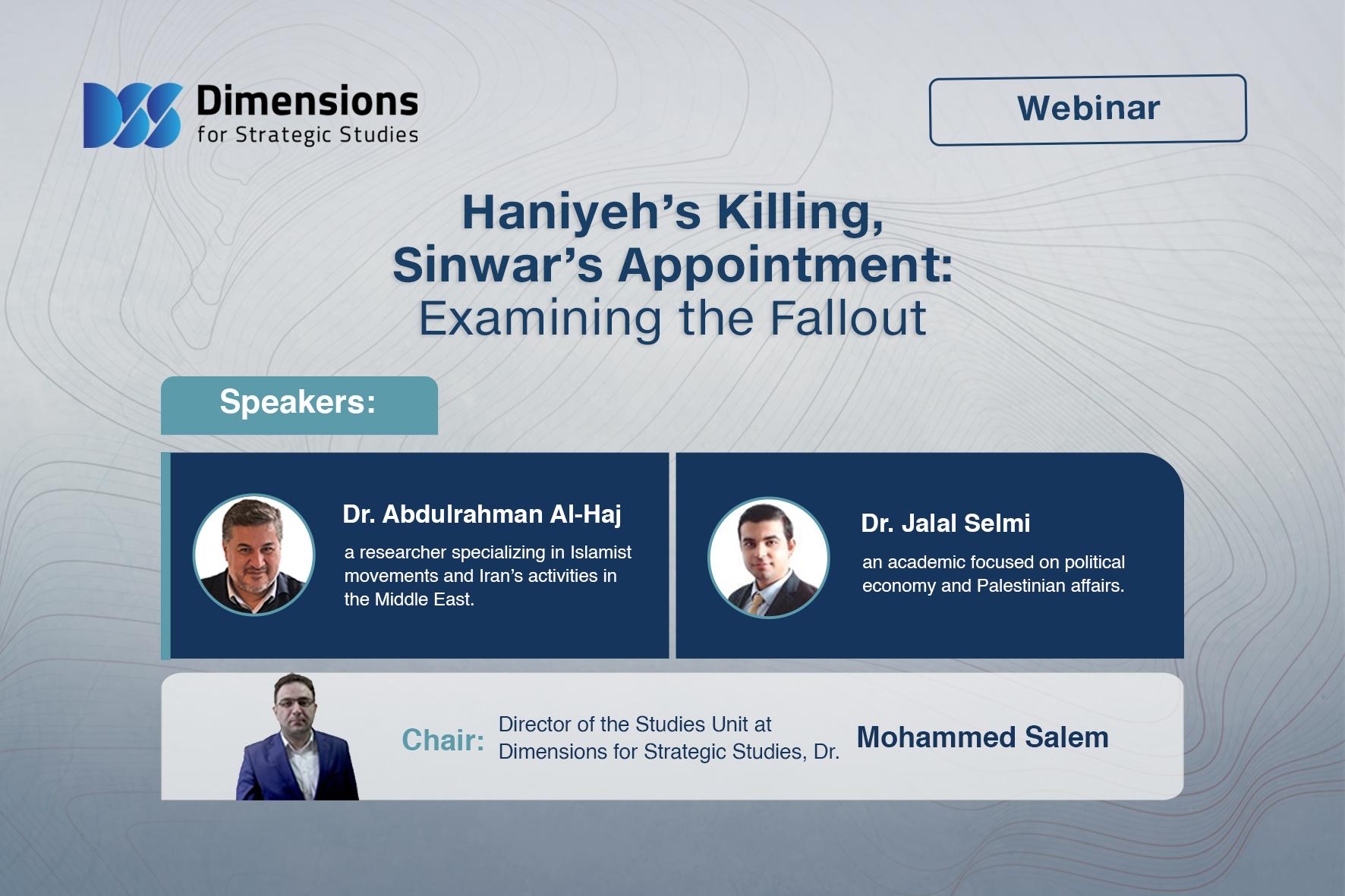
Haniyeh’s Killing, Sinwar’s Appointment: Examining the Fallout
2024-08-165342 view
Dimensions for Strategic Studies held a forum on X (formerly Twitter) entitled “Haniyeh’s Assassination and Sinwar’s Appointment: Implications, Messages and Possible Responses.”
On the panel were Dr. Abdulrahman Al-Haj, an academic and researcher specializing in Islamist movements and Iran’s activities in the Middle East. He was joined by Dr. Jalal Selmi, a political academic and expert in Palestinian affairs.
The seminar was moderated by the Director of the Studies Unit at Dimensions, Dr. Mohammed Salem.
Dr. Selmi outlined the hierarchy of Hamas and its decision-making mechanisms, noting that Ismail Haniyeh had been a relative moderate who sought to improve relations with various countries and actors in the region. Haniyeh also had a preference for a ceasefire, hoping to give the people of Gaza a chance to live in peace.
Selmi said decision-making in Hamas is done collectively rather than individually. He added that the recent operation carried out on October 7 was carried out by the movement’s military wing, the Al-Qassam Brigades, of which Haniyeh’s replacement as overall Hamas chief, Yahya Sinwar, is a member. The Brigades often make important decisions and are the most influential element within the movement. Selmi said.
He also noted that Haniyeh had been considered the lynchpin of the movement, coordinating between its three main offices: its foreign relations office, West Bank and Gaza wings. The appointment of Sinwar strengthens the clout of the Gaza branch and the Al-Qassam Brigades, as well as bolstering the tendency towards strengthening relations with the Iranian axis.
Selmi said that the current war is likely to continue, given Israeli Prime Minister Benjamin Netanyahu’s intransigence and the rise of a hardline leader of Hamas in the form of Sinwar, who may demand a complete Israeli withdrawal from Gaza. Sinwar is likely to be disappointed: Israel may be expected to occupy at least part of Gaza for 10 to 15 years.
Dr. Al-Haj argued that Israel’s aim in assassinating Haniyeh was to establish new rules of engagement and expand its freedom of maneuver against Iran—including by striking targets inside Iranian territory. Al-Haj also said Iran was likely to refrain from carrying out a robust response to the assassination, as that would give Israel an opportunity escalate further, including by bombing Iranian nuclear facilities.
Iran’s delay in responding response represents an opportunity for it to coordinate with world powers and formulate a proportionate response that does not spark a major escalation or a region-wide war, Dr. Al-Haj said. He said there were two possible scenarios for a response: either from Iran as a state, or a coordinated attack by Iran and its allies in the region, such as Hezbollah and the Houthis.





